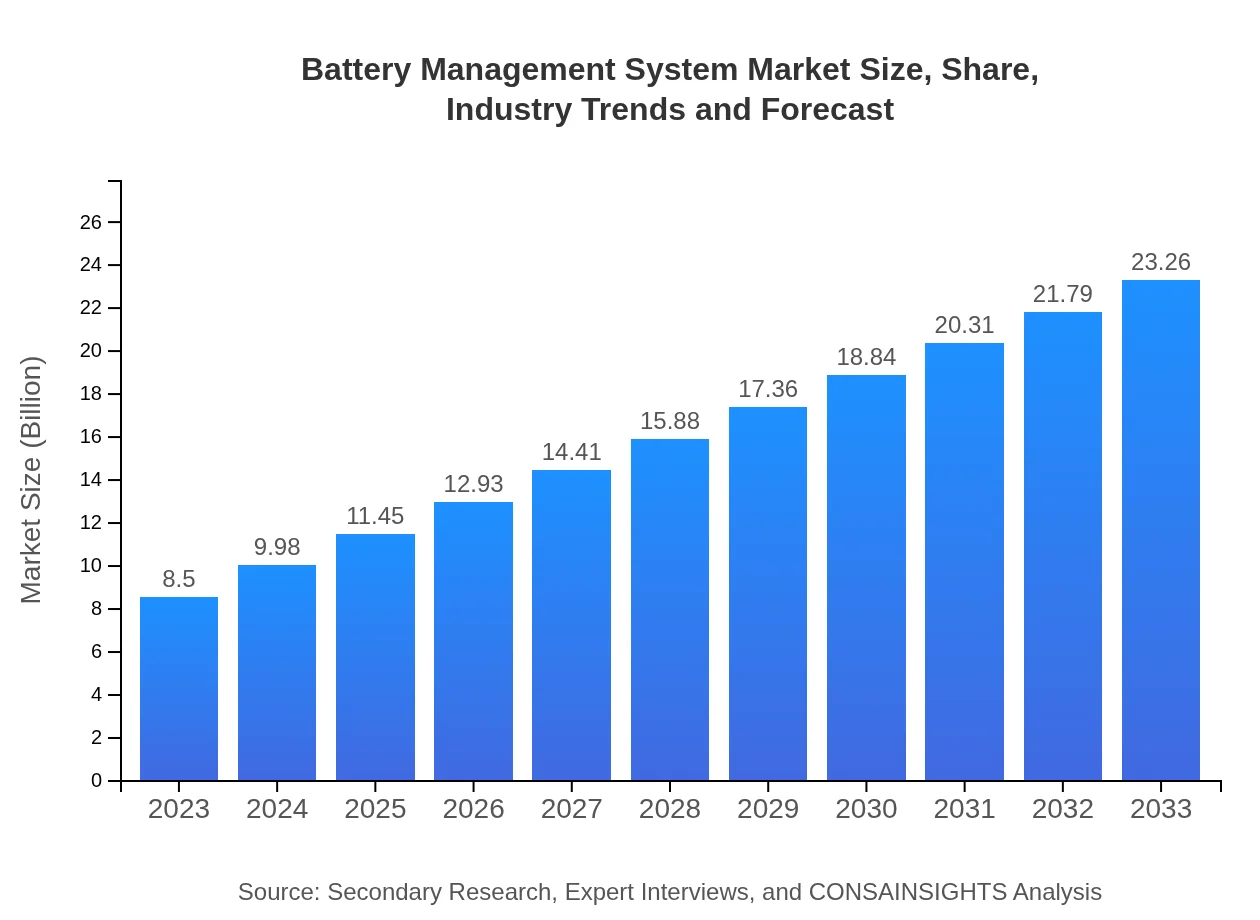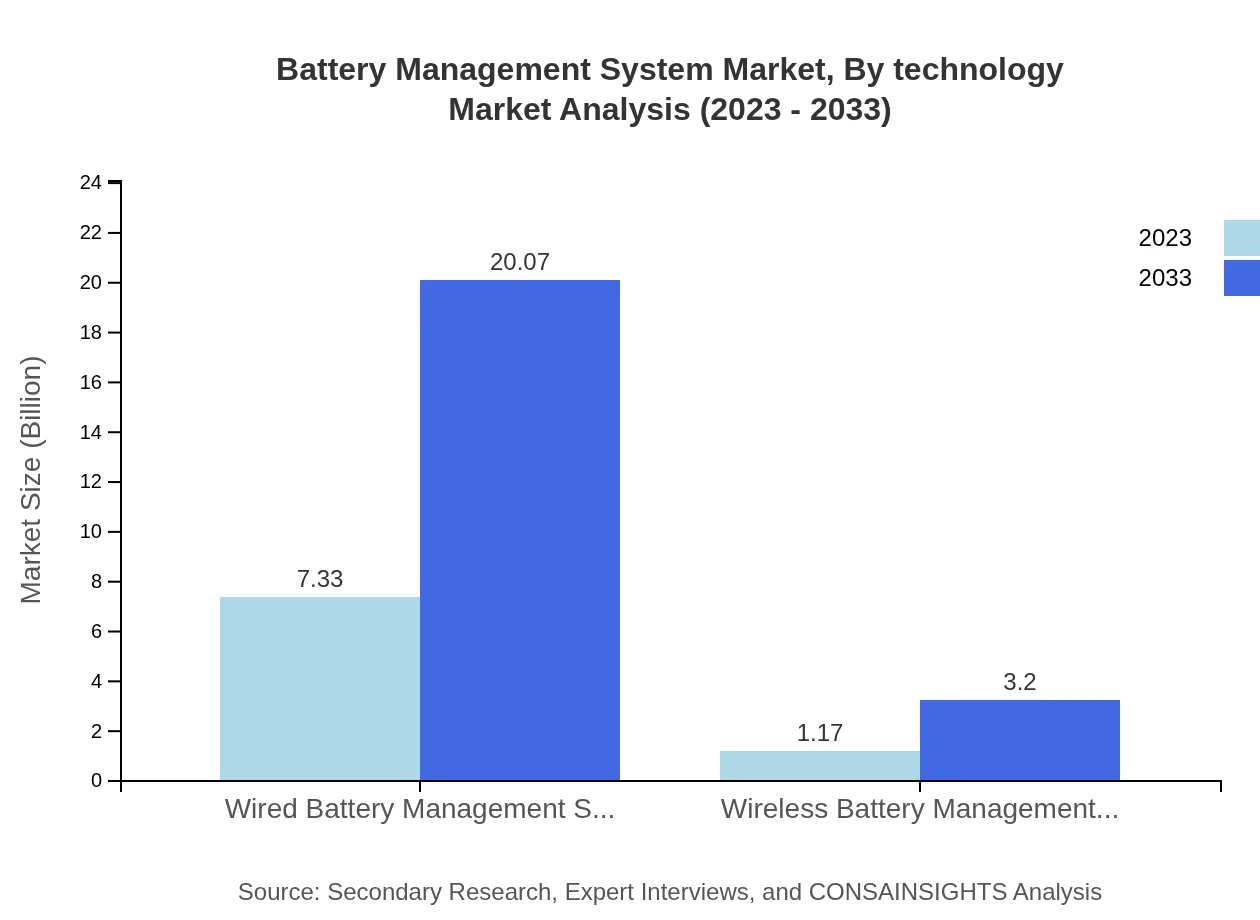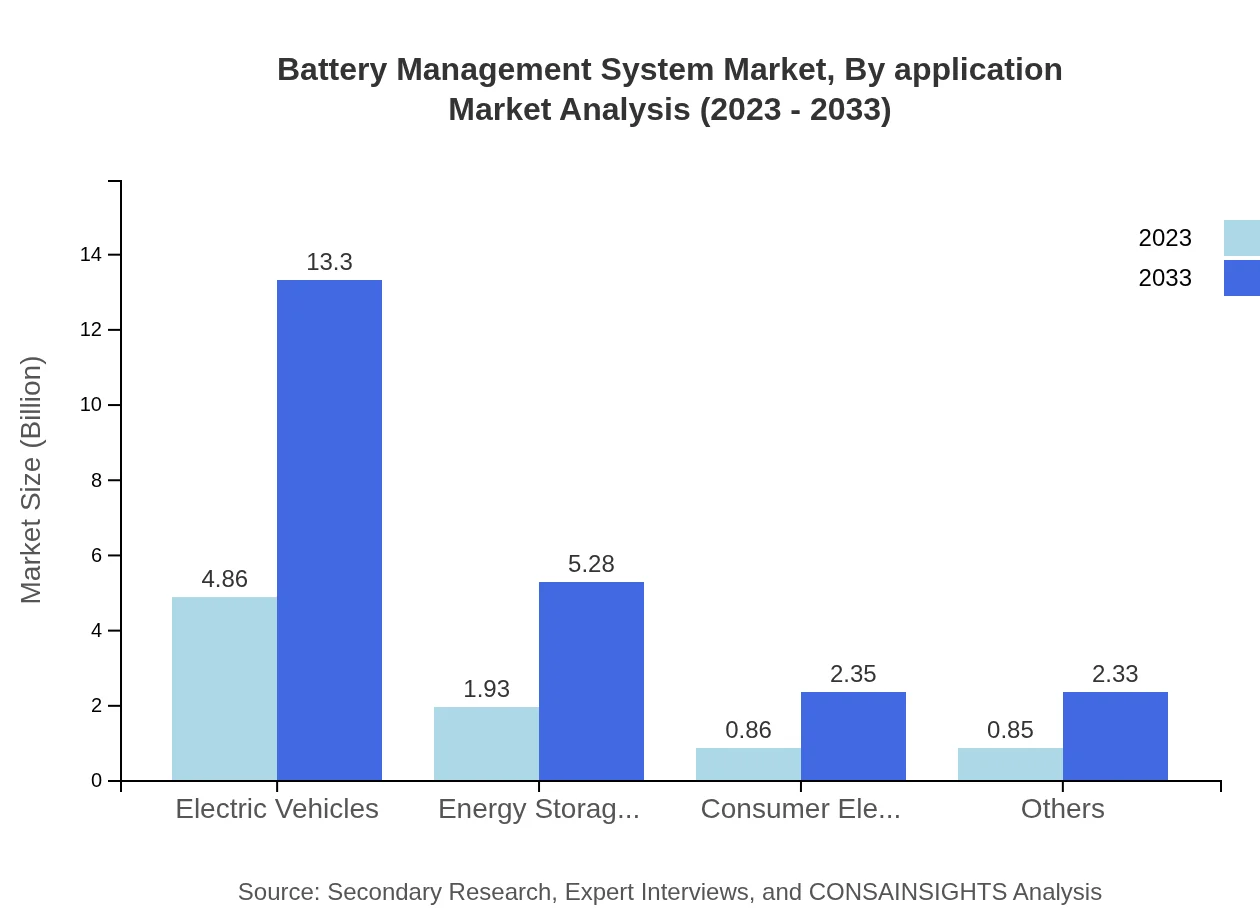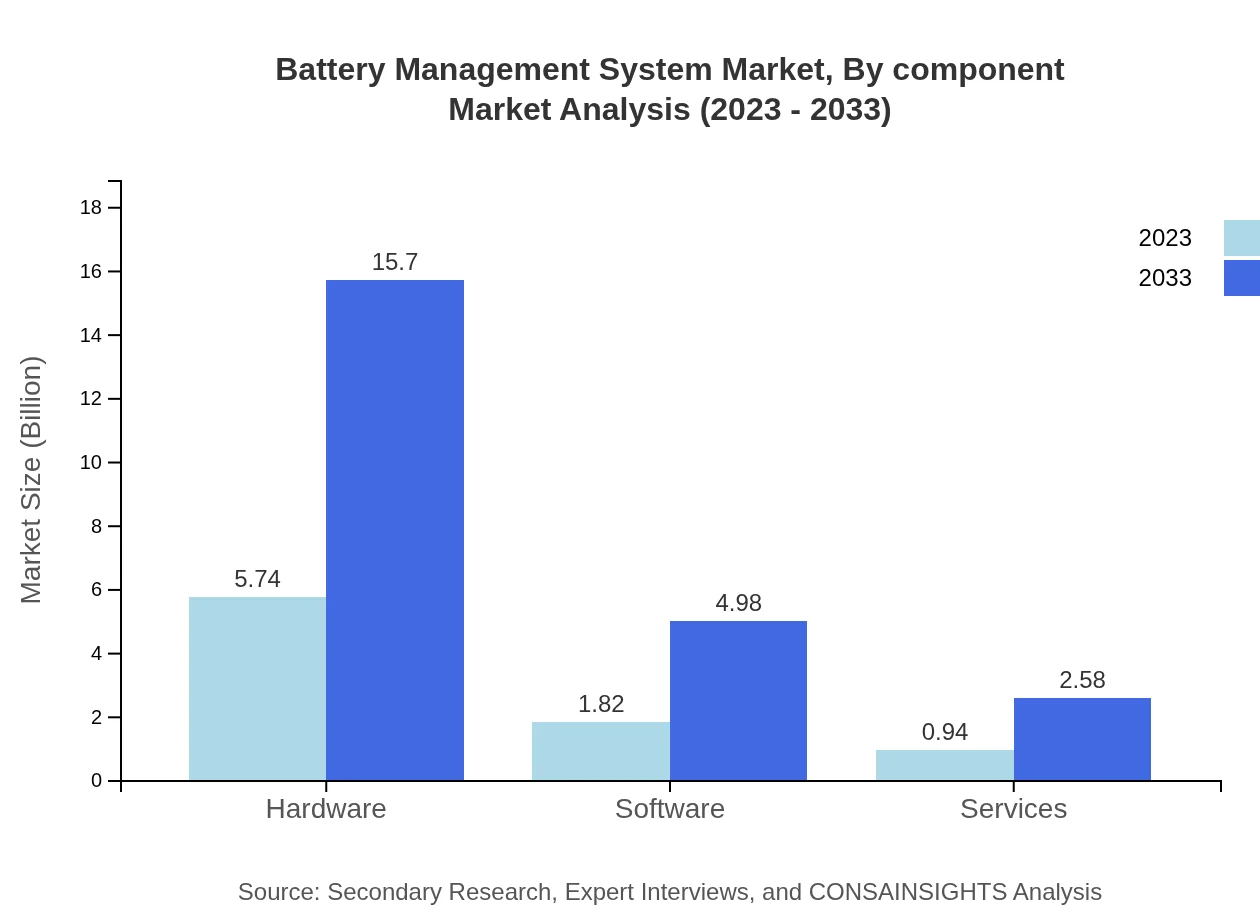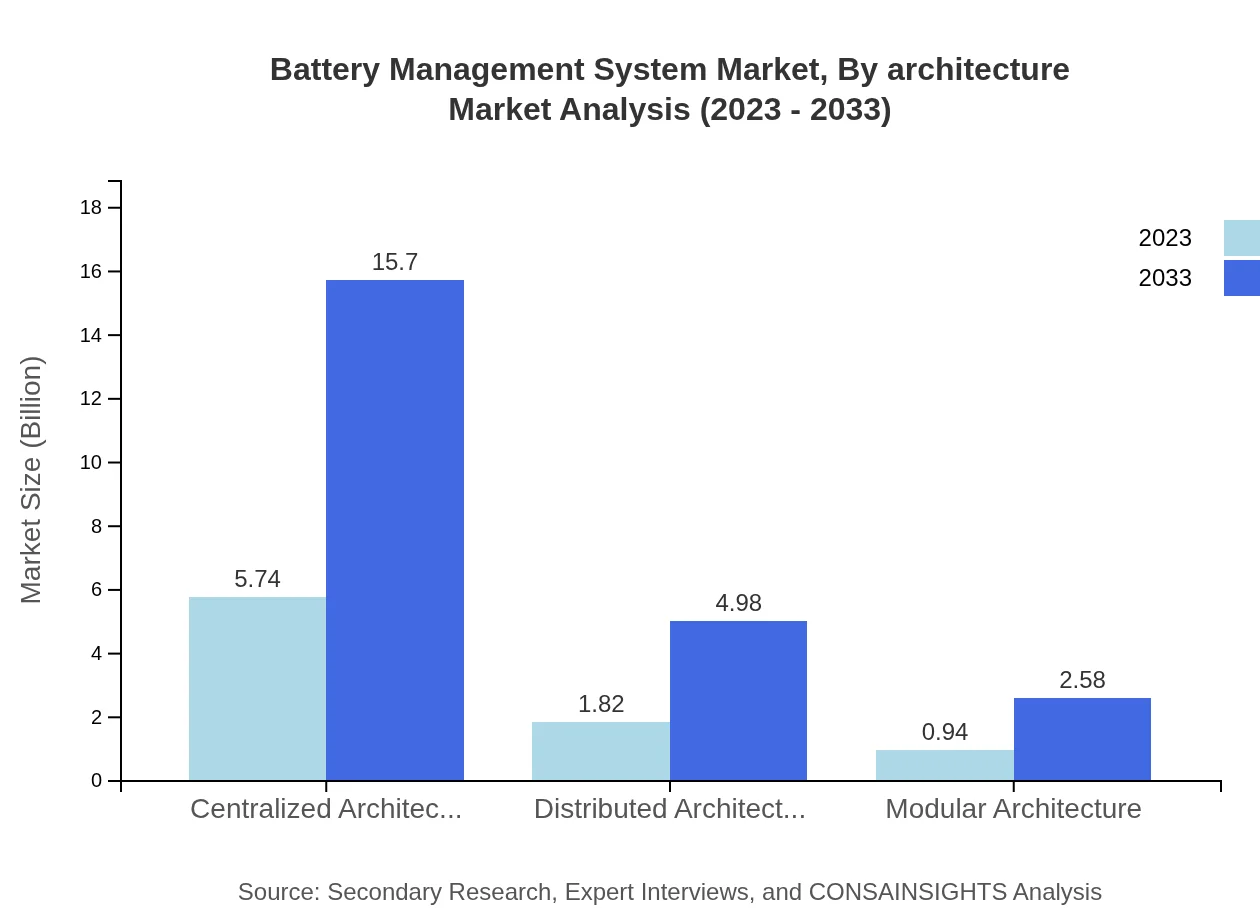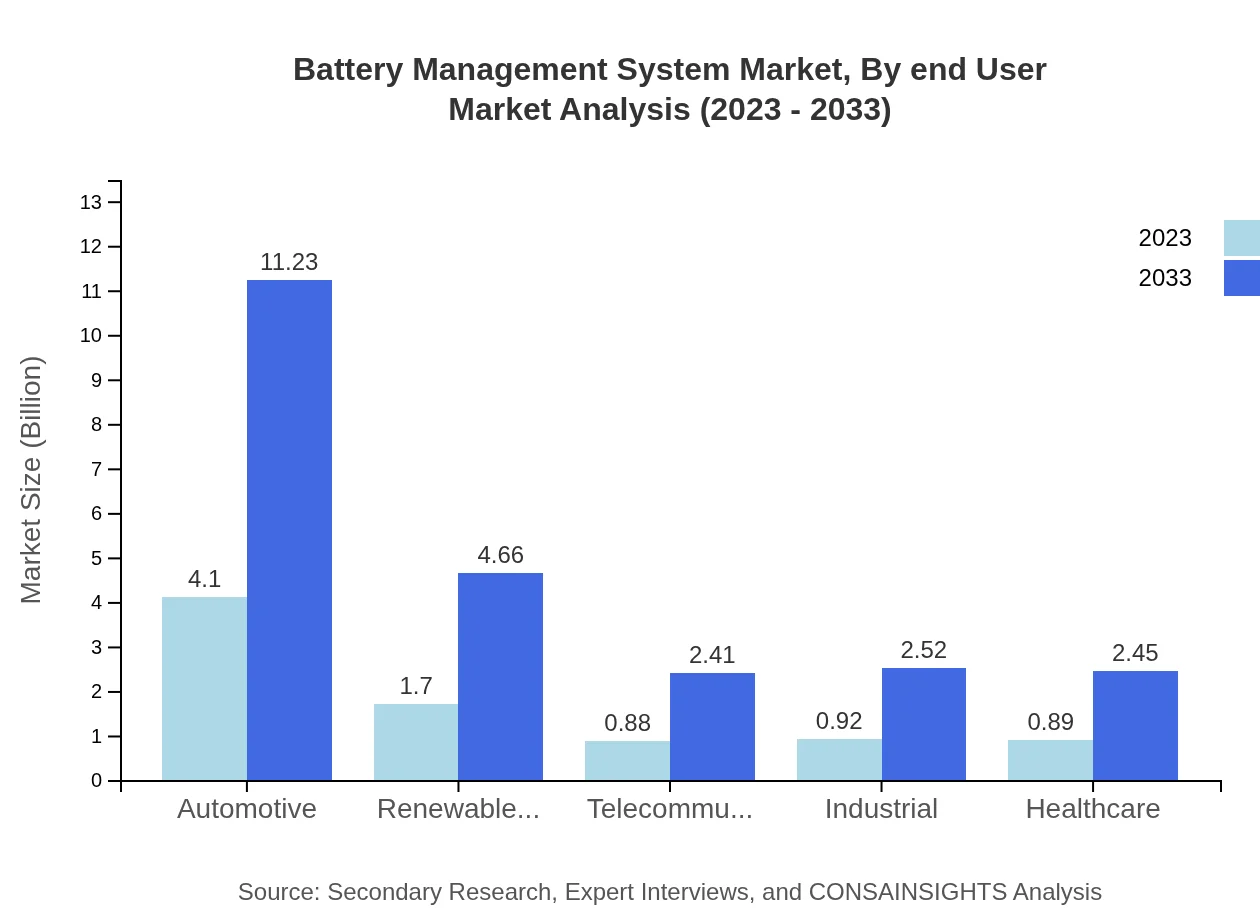Battery Management System Market Report
Published Date: 22 January 2026 | Report Code: battery-management-system
Battery Management System Market Size, Share, Industry Trends and Forecast to 2033
This report provides an in-depth analysis of the Battery Management System market, covering market size, growth projections, industry trends, regional insights, and competitive landscape between 2023 and 2033.
| Metric | Value |
|---|---|
| Study Period | 2023 - 2033 |
| 2023 Market Size | $8.50 Billion |
| CAGR (2023-2033) | 10.2% |
| 2033 Market Size | $23.26 Billion |
| Top Companies | Texas Instruments, NXP Semiconductors, Analog Devices, STMicroelectronics, Infineon Technologies |
| Last Modified Date | 22 January 2026 |
Battery Management System Market Overview
Customize Battery Management System Market Report market research report
- ✔ Get in-depth analysis of Battery Management System market size, growth, and forecasts.
- ✔ Understand Battery Management System's regional dynamics and industry-specific trends.
- ✔ Identify potential applications, end-user demand, and growth segments in Battery Management System
What is the Market Size & CAGR of Battery Management System market in 2023 and 2033?
Battery Management System Industry Analysis
Battery Management System Market Segmentation and Scope
Tell us your focus area and get a customized research report.
Battery Management System Market Analysis Report by Region
Europe Battery Management System Market Report:
Europe is projected to grow significantly from $2.18 billion in 2023 to $5.98 billion by 2033, driven by stringent regulations regarding emissions and an increasing focus on green technologies.Asia Pacific Battery Management System Market Report:
The Asia Pacific region is leading the BMS market, projected to grow from $1.74 billion in 2023 to $4.76 billion by 2033. The growth is driven by rising electric vehicle sales and investments in renewable energy.North America Battery Management System Market Report:
In North America, the market is expected to surge from $3.01 billion in 2023 to $8.24 billion by 2033, primarily due to the growing electric vehicle market and technological advancements in BMS.South America Battery Management System Market Report:
The South American market will expand from $0.63 billion in 2023 to $1.74 billion by 2033, supported by governmental initiatives for clean energy and electric mobility.Middle East & Africa Battery Management System Market Report:
The Middle East and Africa region will see the BMS market rise from $0.93 billion in 2023 to $2.55 billion by 2033, as countries in this region invest in renewable energy and storage solutions.Tell us your focus area and get a customized research report.
Battery Management System Market Analysis By Technology
The market is divided into Wired and Wireless Battery Management Systems. Wired systems dominate the market, with a size growing from $7.33 billion in 2023 to $20.07 billion by 2033. Conversely, the wireless BMS segment is also expanding, projected to grow from $1.17 billion to $3.20 billion during the same period.
Battery Management System Market Analysis By Application
Key applications of BMS include Automotive, Renewable Energy, Telecommunications, and Consumer Electronics. The Automotive sector stands out, projecting a market size growth from $4.10 billion in 2023 to $11.23 billion by 2033, while Renewable Energy will see significant growth from $1.70 billion to $4.66 billion from 2023 to 2033.
Battery Management System Market Analysis By Component
The market can be segmented by components into Hardware, Software, and Services. The Hardware segment leads with a size increasing from $5.74 billion in 2023 to $15.70 billion in 2033, while Software is expected to grow from $1.82 billion to $4.98 billion.
Battery Management System Market Analysis By Architecture
From an architectural perspective, BMS can be classified into Centralized, Distributed, and Modular architectures. Centralized Architecture remains the dominant segment, increasing from $5.74 billion in 2023 to $15.70 billion by 2033.
Battery Management System Market Analysis By End User
The market is also examined based on end-users, including Automotive, Industrial, Telecommunication, Healthcare, and Energy Storage. The Automotive sector is the largest end-user, contributing substantial revenues through the adoption of electric vehicle technologies, expecting an increase in market size from $4.86 billion to $13.30 billion.
Battery Management System Market Trends and Future Forecast
Tell us your focus area and get a customized research report.
Global Market Leaders and Top Companies in Battery Management System Industry
Texas Instruments:
A leading semiconductor company providing various battery management solutions critical in automotive and energy sectors.NXP Semiconductors:
Specializing in secure connectivity solutions, NXP offers innovative BMS tailored for electric vehicles and industrial applications.Analog Devices:
Analog Devices delivers high-performance BMS for various applications, with a focus on efficiency and reliability in battery lifecycle management.STMicroelectronics:
A global leader in semiconductor solutions, STMicroelectronics provides advanced BMS technologies for automotive, industrial, and consumer electronics sectors.Infineon Technologies:
With a strong focus on power management, Infineon Technologies offers BMS solutions that enhance battery performance and safety in various applications.We're grateful to work with incredible clients.









FAQs
What is the market size of battery Management System?
The global battery management system market is projected to reach approximately $8.5 billion by 2033, growing at a CAGR of 10.2% from 2023. The market is diversified across various applications and regions, reflecting its expanding significance in energy storage and electric vehicles.
What are the key market players or companies in this battery Management System industry?
Key players in the battery management system market include companies like Texas Instruments, NXP Semiconductors, Maxim Integrated, and Analog Devices. These firms are driving innovation and technology advancements, focusing on safety, efficiency, and integration in battery systems.
What are the primary factors driving the growth in the battery Management System industry?
Growth in the battery management system industry is primarily driven by the increasing demand for electric vehicles, rising renewable energy installations, and advancements in battery technology. Moreover, the need for energy storage solutions and efficient battery lifecycle management significantly contributes to market expansion.
Which region is the fastest Growing in the battery Management System?
The Asia Pacific region is the fastest-growing in the battery management system market, with its market size expected to expand from $1.74 billion in 2023 to $4.76 billion by 2033. This growth is driven by the booming electric vehicle market and significant energy storage initiatives.
Does ConsaInsights provide customized market report data for the battery Management System industry?
Yes, ConsaInsights offers customized market report data tailored to specific needs and requirements within the battery management system industry. Clients can request detailed insights relevant to their strategic objectives and market segments.
What deliverables can I expect from this battery Management System market research project?
Deliverables from the battery management system market research project may include comprehensive reports, market size and forecasts, competitor analysis, technological trends, and strategic recommendations tailored to business growth and development.
What are the market trends of battery Management System?
Current market trends include advancements in modular battery architectures, increased focus on wireless battery management systems, and a shift towards centralized and distributed systems. These trends reflect the industry's response to evolving consumer demands and technological innovations.

